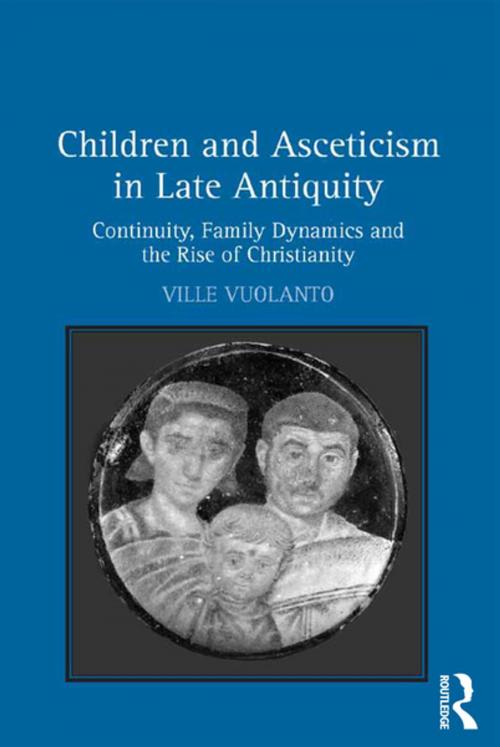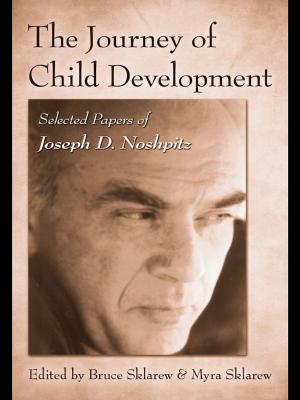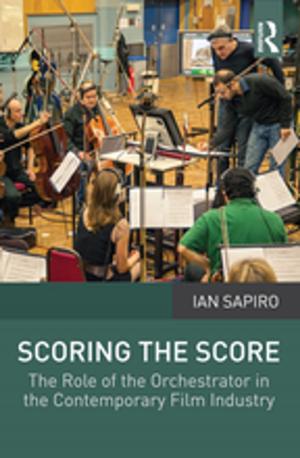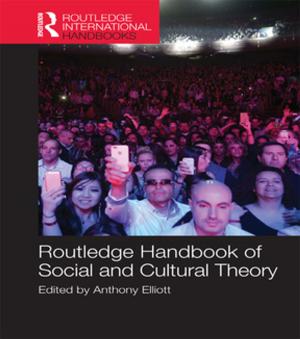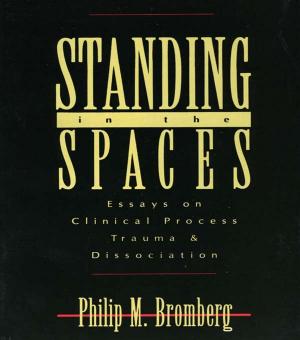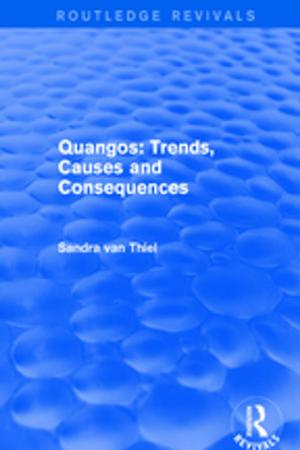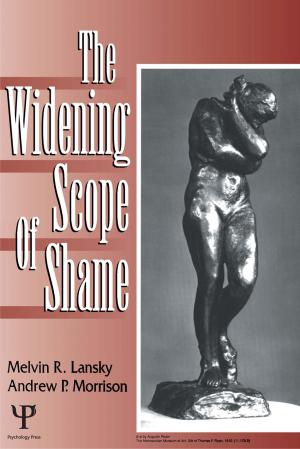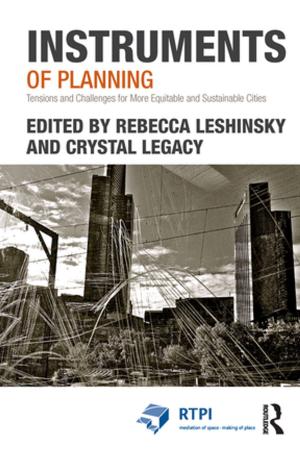Children and Asceticism in Late Antiquity
Continuity, Family Dynamics and the Rise of Christianity
Nonfiction, History, Ancient History, Religion & Spirituality, Christianity, General Christianity| Author: | Ville Vuolanto | ISBN: | 9781317167853 |
| Publisher: | Taylor and Francis | Publication: | March 3, 2016 |
| Imprint: | Routledge | Language: | English |
| Author: | Ville Vuolanto |
| ISBN: | 9781317167853 |
| Publisher: | Taylor and Francis |
| Publication: | March 3, 2016 |
| Imprint: | Routledge |
| Language: | English |
In Late Antiquity the emergence of Christian asceticism challenged the traditional Greco-Roman views and practices of family life. The resulting discussions on the right way to live a good Christian life provide us with a variety of information on both ideological statements and living experiences of late Roman childhood. This is the first book to scrutinise the interplay between family, children and asceticism in the rise of Christianity. Drawing on texts of Christian authors of the late fourth and early fifth centuries the volume approaches the study of family dynamics and childhood from both ideological and social historical perspectives. It examines the place of children in the family in Christian ideology and explores how families in the late Roman world adapted these ideals in practice. Offering fresh viewpoints to current scholarship Ville Vuolanto demonstrates that there were many continuities in Roman ways of thinking about children and, despite the rise of Christianity, the old traditions remained deeply embedded in the culture. Moreover, the discussions about family and children are shown to have been intimately linked to worries about the continuity of family lineage and of the self, and to the changing understanding of what constituted a meaningful life.
In Late Antiquity the emergence of Christian asceticism challenged the traditional Greco-Roman views and practices of family life. The resulting discussions on the right way to live a good Christian life provide us with a variety of information on both ideological statements and living experiences of late Roman childhood. This is the first book to scrutinise the interplay between family, children and asceticism in the rise of Christianity. Drawing on texts of Christian authors of the late fourth and early fifth centuries the volume approaches the study of family dynamics and childhood from both ideological and social historical perspectives. It examines the place of children in the family in Christian ideology and explores how families in the late Roman world adapted these ideals in practice. Offering fresh viewpoints to current scholarship Ville Vuolanto demonstrates that there were many continuities in Roman ways of thinking about children and, despite the rise of Christianity, the old traditions remained deeply embedded in the culture. Moreover, the discussions about family and children are shown to have been intimately linked to worries about the continuity of family lineage and of the self, and to the changing understanding of what constituted a meaningful life.
